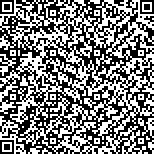| |
|
|
| 本文已被:浏览 1685次 下载 618次 |

码上扫一扫! |
|
|
| 游人密度及道路宽度对城市绿地游览体验的影响 |
|
赵警卫, 唐婷
|
|
中国矿业大学
|
|
| 摘要: |
| 为了深入理解游人密度及道路宽度对城市绿地游览体验的影响,首先通过计算机技术创建30张包含2种道路宽度、5种游人密度、3种城市绿地类型的情景模拟图,再通过网络问卷的形式调查人们对这些场景的游览意愿。所得主要结论包括:1)在本研究中,无论何种城市绿地都需要一个适度的游人密度:当所见视域内人数为2人时,人工绿地拥有最佳的游览体验,而自然绿地的最佳游人人数为4人,高于人工绿地;2)道路拓宽对于人们的游览意愿的影响较小;3)总体来说,影响游览体验最主要因素是游人密度,当游客人数超出或低出最适度的游人密度后,游人的游览体验也随之降低。本研究为优化城市绿地游览体验的设计管理提供参考。 |
| 关键词: 风景园林 游览体验 情景模拟 拥挤感 游人密度 道路宽度 |
| DOI:10.14085/j.fjyl.2020.10.0106.06 |
| 分类号:TU986.2 |
| 基金项目:教育部人文社会科学一般项目(编号 16YJA760052) |
|
| Impacts of Tourist Density and Road Width on Urban Green Space Tour Experience |
|
ZHAO Jingwei, TANG Ting
|
|
China University of Mining and Technology
|
| Abstract: |
| To understand the impact of tourist density and road width on urban green space tour experience, we specifically created 30 simulated scenarios which involved 2 widths of roads, 5 levels of tourist density and 3 types of urban green space, to inquire people’s willingness of visiting these places via online questionnaires. The main conclusions include: 1) A moderate visitor density can improve visiting experience in all types of urban green space. When two tourists appear within the visible range of an environment, the evaluators give the optimum tour experience in artificial green space, while the best visitor number in natural green space is four. 2) The width of road has less impact on people’s willingness to visit. 3) In general, the most important factor affecting the tour experience is the density of tourists. Once the number of tourists exceeds or falls below the optimum density, the tour experience will deteriorate accordingly. The conclusion may provide guidance for optimizing the design management of tour experience in urban green space. |
| Key words: landscape architecture tour experience scenario simulation perceived crowding visitor density path width |
| 引用本文: | 赵警卫,唐婷.游人密度及道路宽度对城市绿地游览体验的影响[J].风景园林,2020,27(10):106-111. |
| ZHAO Jingwei,TANG Ting.Impacts of Tourist Density and Road Width on Urban Green Space Tour Experience[J].Landscape Architecture Journal, 2020, 27(10):106-111. |
|